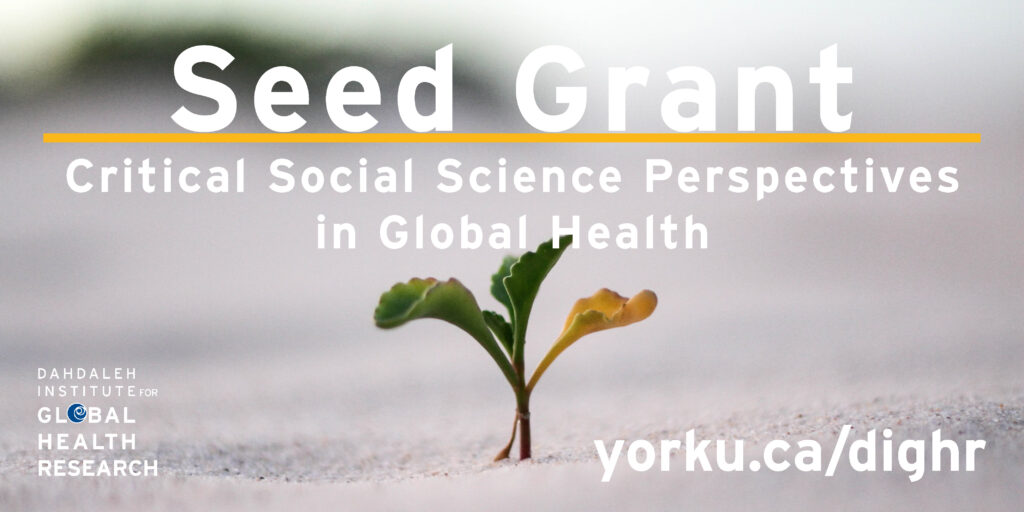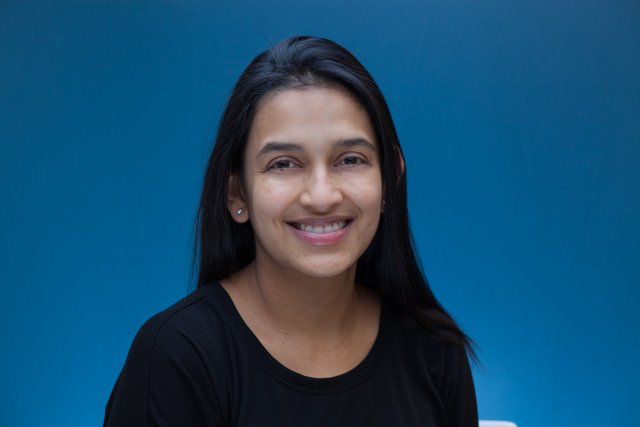
Five York University researchers have been awarded seed grants for the 2022 Critical Perspectives in Global Health Research (CPGH), awarded by the Dahdaleh Institute for Global Health Research.
The recipients, and their research projects, are:
- Pablo Aránguiz – Decolonizing Planetary Health Through Williche Ecologies of Repair
- Simone Bohn – State Capacity and Health Equity in a Post-Slavery Context: The Case of the Quilombolas in Brazil
- Maggie MacDonald – Misoprostol in Humanitarian Settings
- Blessing Ogbuokiri – Harnessing Social Media Data to Complement Infectious Disease Outbreak Surveillance Data
- Jeffrey Squire – COVID-19 and Healthcare Waste Management in Urban Africa
Recipients will each receive $5,000 to support their critical global health research and will present on their work in progress at next year’s workshop on Critical Social Science Perspectives in Global Health Research.

The purpose of the CPGH program is to support York University-based critical social science perspectives in global health research that contribute to the three research themes of the Dahdaleh Institute for Global Health Research: planetary health; global health and humanitarianism; and global health foresighting. The seed grants support researchers in developing fuller grant proposals for fall Tri-Council and other funding deadlines.
2022 CPGH Workshop
The workshop held on March 8 and 9 showcased an exceptional range of critical global health research being pursued at York across diverse Faculties and disciplines. As Professor Eric Mykhalovskiy noted in his introductory remarks, “Critical perspectives to global health require a willingness to challenge taken-for-granted ways of knowing” and seek to “destabilize entrenched power.” York is home to many engaged scholars pursuing critical global health research agendas and collaborating meaningfully with communities, and the Dahdaleh Institute’s CPGH program is an important commitment to fostering cooperation and dialogue from critical health researchers across disciplines whose perspectives are frequently excluded from mainstream funding.

Professor Amrita Daftary, a Dahdaleh Institute Faculty Fellow and assistant professor in the School of Global Health, delivered the keynote address for the workshop, discussing the challenges scholars face in getting critical perspectives into mainstream journals. Lamenting the “appalling lack of diversity and stink of neocolonialism in global health publishing,” she advised the audience that commentary and perspective sections can be good avenues for overcoming the marginalization of critical research in mainstream journals and highlighted the importance of targeting the right editor and emphasizing the impact of the research and findings.
Both days of the event featured updates from last year’s CPGH seed grant recipients on their work-in-progress, as well as brief pitches on critical global health research projects from members of York’s research community.
Fittingly, many presentations focused on pandemic-related issues, asking critical questions about: misguided epidemiological expectations in sub-Saharan Africa (Assistant Professor Oghenowede Eyawo and undergraduate student Aisha Duale); how mistrust among refugees in South Africa affects access to services (Professor Michaela Hynie and Aron Tesfai, South Africa-based independent researcher in social psychology and health promotion); how the pandemic has affected health care waste management in the global south (Assistant Professor Jeffrey Squire); what community-based solutions to health crises can look like (Megan Corbett-Thompson, Dahdaleh Institute research Fellow); and what Twitter can tell us about unemployment during the pandemic (Zahra Movahedi Nia, postdoctoral Fellow) and about public sentiments toward vaccines (Blessing Ogbuokiri, postdoctoral Fellow).
Other presenters shared insights and research questions about decolonizing the social determinants of health (Vortstermans); the health impacts of sanctions (Associate Professor Claudia Chaufan and research assistant Nora Yousefi); the effects of structural violence on health equity for Quilombola women in Brazil (Associate Professor Simone Bohn); notions of deservingness of access to health care among advocates (PhD candidate Sarah Marshall); and shifts in conservation policy that make communities the target of surveillance (Postdoctoral Fellow James Stinson and Tieneke Dykstra, global health intern). Yet other presentations focused on urban political ecology, including the urban political ecology of governance related to antimicrobial resistance (PhD candidate Raphael Aguiar) and on the urban political ecologies of Ebola in Monrovia (PhD student Hillary Birch) and in West Africa (PhD candidate Stefan Treffers). A separate seed grant presentation on April 12 focused on a literature review exploring neuroscientific infrastructure in Kenya (Associate Professor Denielle Elliott and PhD candidate Michelle Charette), illuminating complex global health dynamics through this lens.
Watch a full recording of the two-day workshop.
Sign up for the Dahdaleh Institute monthly newsletter to learn more about the CPGH program and other global health research activities throughout the year.
